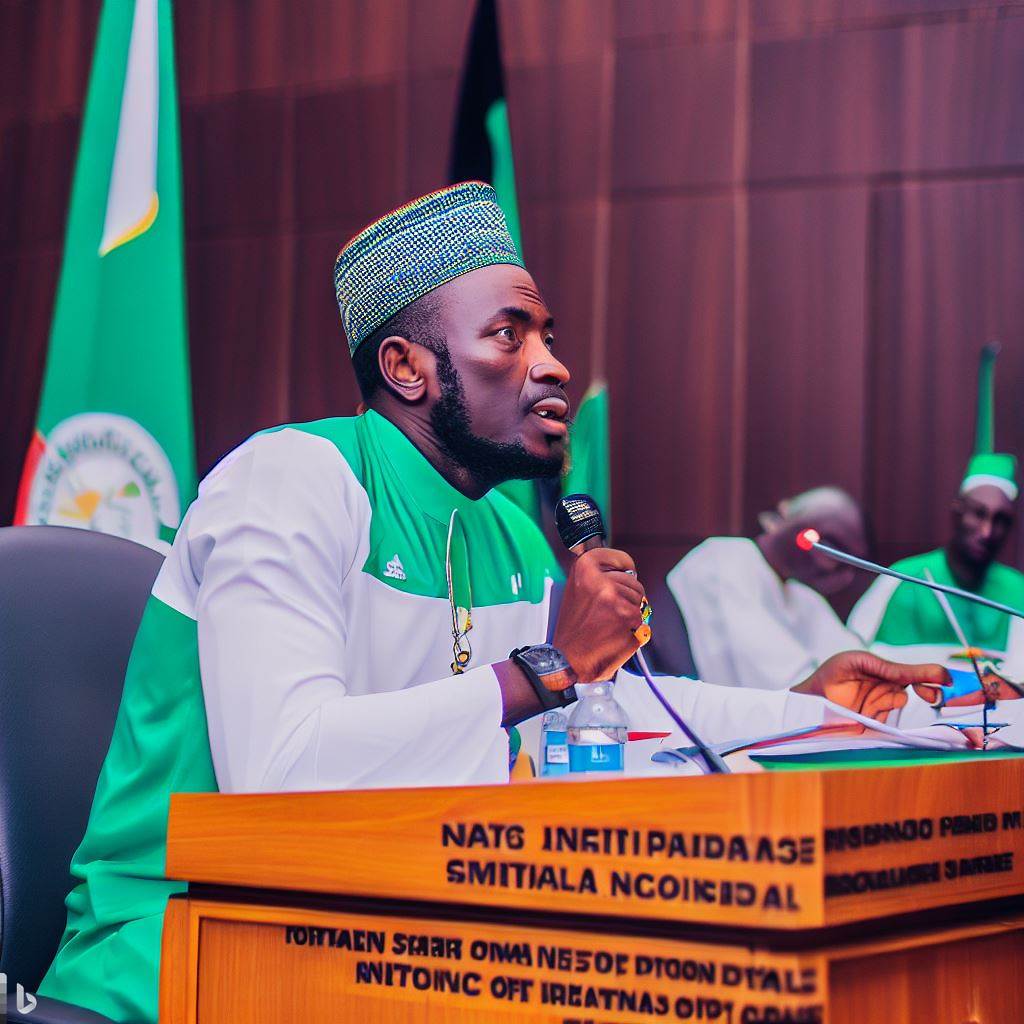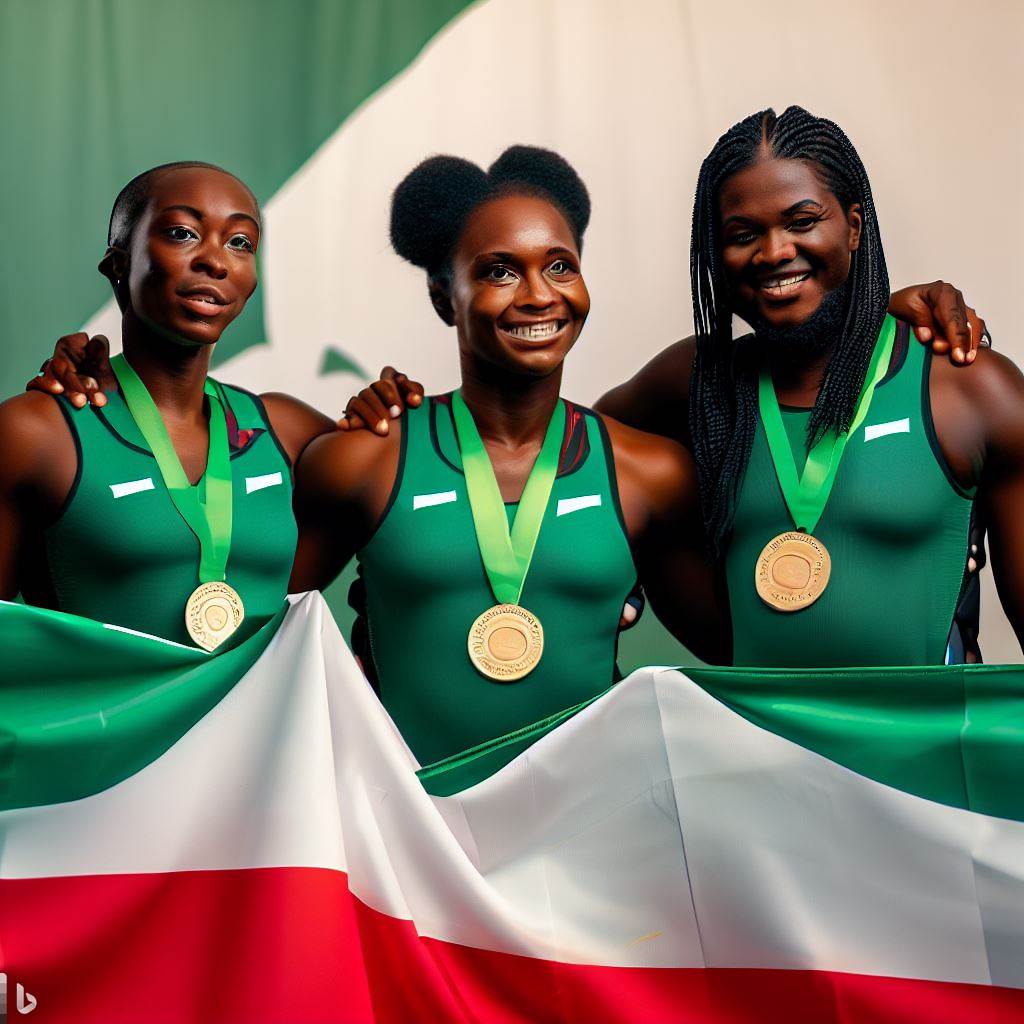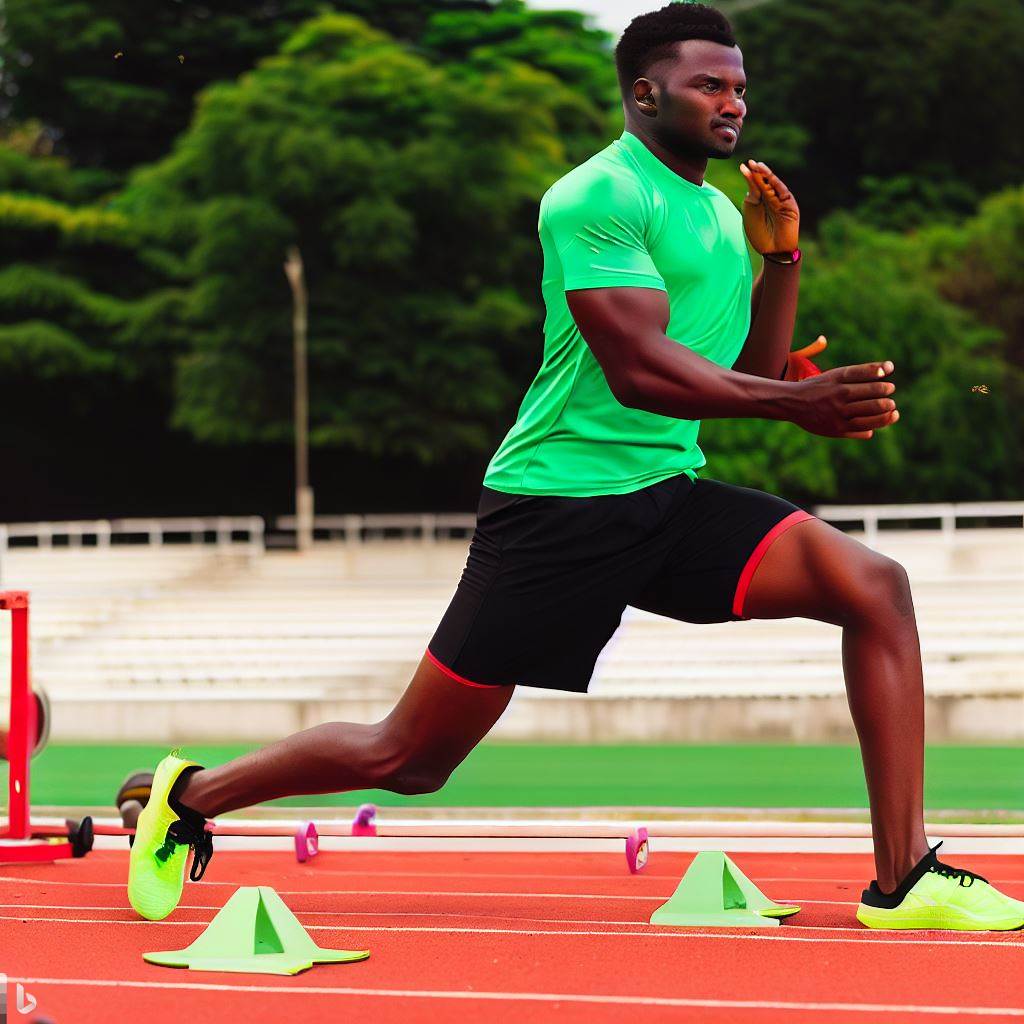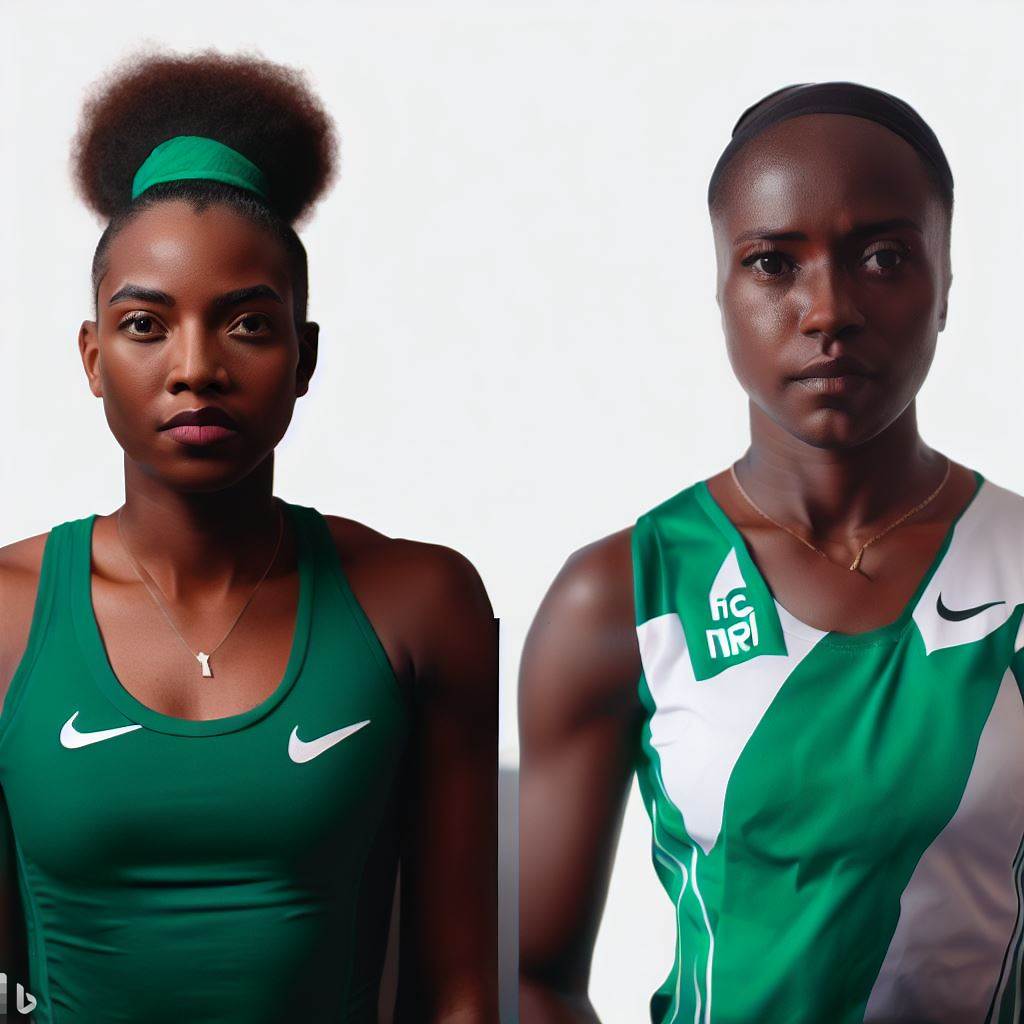Introduction
Nigeria, a country located in West Africa, has a long history of sports activities and achievements.
The country has implemented various national sports policies over the years, aimed at improving the sports sector. It is important to analyze these policies because they have a significant impact on the development of sports in Nigeria.
Through this review, we can identify the strengths, weaknesses, opportunities, and threats of Nigeria’s sports policies.
This will enable us to recommend ways to improve the policies for the benefit of sports development in Nigeria.
This means that analyzing Nigeria’s sports policies can also contribute to national unity and cohesion.
The objective of this review is to provide a comprehensive assessment of Nigeria’s sports policies and their effects on sports development.
In the subsequent chapters, we will delve into the details of these policies and evaluate their effectiveness in promoting sports growth in Nigeria.
Read: Influence of Sponsorship on Nigerian Athletes
Brief History of Nigeria’s National Sports Policies
Since gaining independence in 1960, Nigeria has implemented various sports policies to improve the development and growth of sports in the country.
Here is an overview of Nigeria’s sports policies since independence:
List of Nigeria’s Sports Policies
- 1960: Establishment of the National Sports Council
- 1971: The National Sports Commission was created
- 1972: Sports Decree 33 was passed, giving the government more control over sports
- 1990: National Sports Policy was formulated to address issues such as funding and accessibility
- 1999: Sports Commission Act was established, which led to the creation of the Nigerian Sports Commission
- 2009: A new National Sports Policy was developed to address emerging issues in sports
Over the years, there have been significant developments and changes in Nigeria’s sports policies.
These changes have been aimed at improving the overall sports industry in Nigeria and address challenges facing the sector.
List of Key Changes in Nigeria’s Sports Policies
- The creation of the National Sports Council in 1960 aimed to promote sports at the national level
- The establishment of the National Sports Commission in 1971 created a framework for sports development in Nigeria
- Sports Decree 33 in 1972 gave the government more control and influence over the sports industry
- The formulation of the National Sports Policy in 1990 aimed to address issues such as funding and accessibility of sports
- The establishment of the Sports Commission Act in 1999 created the Nigerian Sports Commission
- The development of a new National Sports Policy in 2009 aimed to address emerging issues in sports, such as the need for private sector involvement
These changes have led to significant improvements in Nigeria’s sports industry.
For instance, more private sector involvement has made it possible to raise funds for sports development, leading to better infrastructure and facilities.
Most importantly, Nigeria’s national sports policies, while not perfect, have played a significant role in the development and growth of sports in the country.
With a focus on addressing emerging issues in sports and continued public-private partnership, there is hope for a brighter future for sports in Nigeria.
Read: Exploring Sports Medicine Opportunities in Nigeria
Current National Sports Policies
Nigeria’s current national sports policies are aimed towards the development of the sporting industry in the country.
These policies are designed to focus on funding, talent identification and development, and sports infrastructure. Here is an overview of the current policies:
#1. National Sports Policy (2018)
- Funding: The policy aims to secure funding for sports development, particularly through public-private partnerships.
- Talent Identification and Development: The policy seeks to identify and develop talented athletes through grassroots programs and the establishment of sports academies.
- Sports Infrastructure: The policy aims to improve existing sports facilities and construct new ones across the country.
#2. National Youth Policy (2019)
- Funding: The policy aims to secure funding for youth development, particularly in sports and entrepreneurial activities.
- Talent Identification and Development: The policy seeks to identify and develop the talents of young people, particularly in sports, through the establishment of sports academies and youth centers.
- Sports Infrastructure: The policy aims to improve the state of sports facilities in schools and communities.
#3. National Policy on Education (2013)
- Funding: The policy aims to increase funding for education, including sports education.
- Talent Identification and Development: The policy seeks to integrate sports and physical education into the school curriculum to develop sports talents at a young age.
- Sports Infrastructure: The policy aims to improve sports facilities in schools and ensure that every school has a sports field and equipment.
#4. National Sports Industry Policy (2020)
- Funding: The policy aims to stimulate the growth of the sports industry through investment, tax incentives, and funding from the private sector.
- Talent Identification and Development: The policy seeks to establish sports academies to develop the skills of sports professionals and create employment opportunities in the sports industry.
- Sports Infrastructure: The policy aims to encourage the development of sports infrastructure through public-private partnerships.
#5. National Policy on Sports Development (2013)
- Funding: The policy aims to secure funding for sports development, particularly through public-private partnerships and the establishment of a National Sports Development Fund.
- Talent Identification and Development: The policy seeks to establish sports academies and talent identification programs to develop the skills of athletes and coaches.
- Sports Infrastructure: The policy aims to improve sports facilities in schools and communities and develop world-class sports centers across the country.
These policies are crucial for the growth and development of the sports industry in Nigeria.
They provide a framework for the government, private sector, and stakeholders to collaborate towards achieving common goals.
Nonetheless, with continued efforts towards implementation, Nigeria has the potential to become a leading sporting nation in Africa and beyond.
Read: A Close Look at the Nigerian Professional Sports Infrastructure
Strengths
Nigeria’s national sports policies have demonstrated some remarkable strengths and successes over the years. Here are some of the policies that have had a positive impact on Nigerian sports:
The National Sports Policy of 1989
This policy provided a framework for sports development in Nigeria and identified key areas for growth and improvement.
It recognized the importance of grassroots sports development and emphasized the need for investment in sports infrastructure, coaching, and administration.
The policy resulted in the establishment of several sports institutes and training centers across the country and helped to improve Nigeria’s performance in international sporting events.
The National Sports Commission Act of 1990
This act established the National Sports Commission (NSC) as the apex body responsible for sports development in Nigeria.
The NSC is responsible for formulating and implementing sports development policies, coordinating national events, and promoting sports.
The act helped to provide a clear legal framework for sports development in Nigeria and has contributed to the growth of sports in the country.
The National Sports Festival
The National Sports Festival is a biennial event that brings together athletes from all the states in Nigeria to compete in various sports.
The festival serves as a platform for identifying and nurturing talent and promoting grassroots sports development. The festival has produced several world-class athletes and helped to raise the profile of Nigerian sports.
The Presidential Task Force on Sports Development
In 2017, the Nigerian government established a task force on sports development to oversee the implementation of policies and programs aimed at reviving Nigerian sports.
The task force has helped to identify key challenges facing Nigerian sports and has proposed several initiatives aimed at improving sports infrastructure, funding, and administration.
The Athletes’ Reward and Recognition Policy
This policy was introduced in 2018 to reward and recognize Nigerian athletes who excel in international sporting events. The policy provides for cash rewards and other incentives for athletes who win medals at international competitions.
The policy has helped to motivate Nigerian athletes and improve their performance in international events.
Overall, Nigeria’s national sports policies have had a positive impact on sports development in the country.
The policies have helped to promote grassroots sports development, improve sports infrastructure, and identify and nurture talent.
However, there is still room for improvement, especially in the areas of funding, sports administration, and athlete welfare.
With continued commitment and investment, Nigerian sports can reach even greater heights.

Weaknesses
- Despite the existence of sports policies, Nigeria’s success in sports has been limited.
- Poor implementation and execution of policies have led to failures in achieving set goals.
- Example include the failure of the National Sports Festival to create a sustainable sports culture.
- Lack of funding has hindered the provision of necessary infrastructure and equipment for athletes.
- Corruption and mismanagement have also hampered the development of sports in Nigeria.
- There is also a lack of clear direction and coordination among relevant stakeholders in the sports sector.
- Inconsistencies in policies and lack of continuity have contributed to a lack of sustained progress towards success.
- There is a lack of inclusivity and diversity in sports, with some regions and demographic groups being under-represented.
- Poor sports education at the grassroots level has also limited the identification and development of talent.
- Nigeria’s poor international performances in sports reflect the weaknesses in the country’s sports policies.
Despite having impressive national sports policies, Nigeria’s performance remains lackluster due to poor policy implementation and enforcement.
Lack of coordination among stakeholders leads to inconsistencies in policies. Inclusivity and diversity are lacking, resulting in untapped potential talent.
Poor sports education at the grassroots level limits talent identification and development.
Read: Steps to Building a Career in Nigeria’s Sports Field
Opportunities for Improvement
The Nigerian National Sports Policies have come a long way, but there are always opportunities for growth and improvement.
Here are some recommendations for improving current policies and suggestions for new policies:
Recommendations for Improving Current Policies
- Develop and enforce player welfare policies: Nigerian sports policies should place a strong emphasis on the physical and mental well-being of athletes. Policies can include regular health check-ups, counseling services, insurance coverage, and rest periods.
- Provide better funding for sports organizations: The Nigerian government should allocate more resources towards sports organizations (both at the national and local levels) to enable them to offer more programs to Nigerian citizens.
- Create more partnerships with private organizations: The government should tap into private organizations to establish partnerships that could accelerate the development of sports in Nigeria.
- Strengthen anti-doping policies: The Nigerian government should strengthen policies for combating the use of performance-enhancing drugs—especially among young athletes.
- Address gender issues: The policies should aim to promote gender equity and end discrimination of female athletes in sports.
Suggestions for New Policies
- Introduce youth development programs: Nigerian sports policies could promote youth development by establishing programs to identify and train young talent. These programs can help young athletes develop their skills and progress in their chosen sport.
- Create policies that encourage grassroots sports development: Grassroots sports can create a pathway for talented individuals to progress to the national level. Policies should focus on granting necessary resources for the effective implementation of programs for grassroots sports.
- Partner with international sports organizations: This policy could assist in ensuring that the country meets the standard required for international sports competitions.
- Create policies that utilize technology: Technology could help drive sports innovation and revolutionize how sports are played and enjoyed. Nigerian sports can benefit from policies that encourage innovation in technologies tailored to the needs of Nigerian athletes and sports organizations.
- Establish policies that promote sports tourism: Tourism offers significant benefits to the economy. Sports tourism would attract sports-loving tourists and bring in direct revenue from international sports events held in Nigeria.
Improving sports policies in Nigeria is essential to properly developing the country’s sports sector.
It is up to the government and other relevant stakeholders to coordinate and implement effective policies that uphold athletes’ welfare and strive to make Nigerian sports globally competitive.
Learn More: Global Events Coverage: A Nigerian Broadcaster’s View
Conclusion
Nigeria has had a long and complex history of national sports policies.
The country has created and amended policies over time, with the goal of improving sports development and performance at both national and international levels.
It is imperative that policymakers, athletes, coaches, and other stakeholders work collaboratively to create policies that are comprehensive, inclusive, and result-oriented.
Nigeria has the potential to become a global sports powerhouse, and the development of effective policies can help the country achieve this goal.
Therefore, it is essential that the Nigerian government invests in sports infrastructure, funding, and talent development while also prioritizing sports research and innovation.
The success of Nigeria’s sports policies relies on active implementation and continuous monitoring over time.




